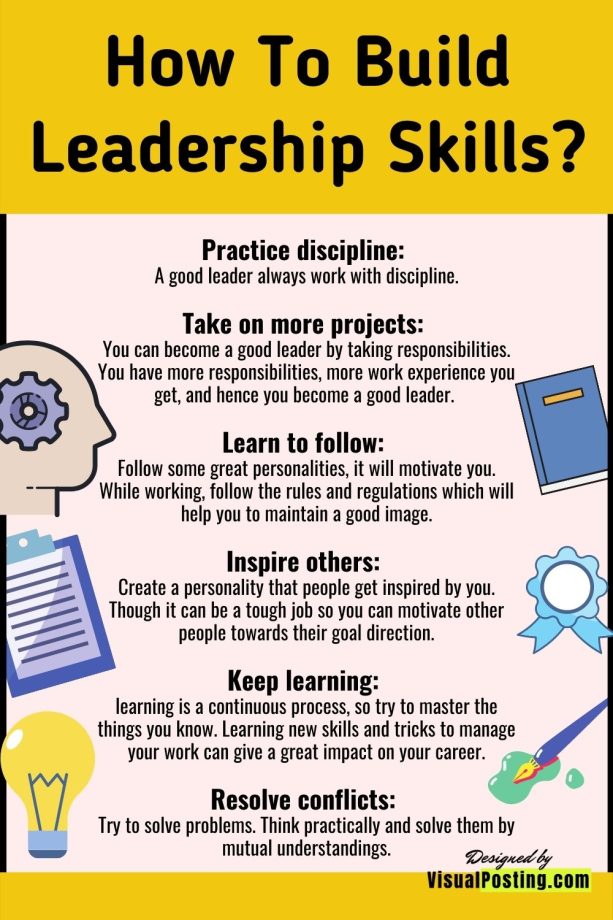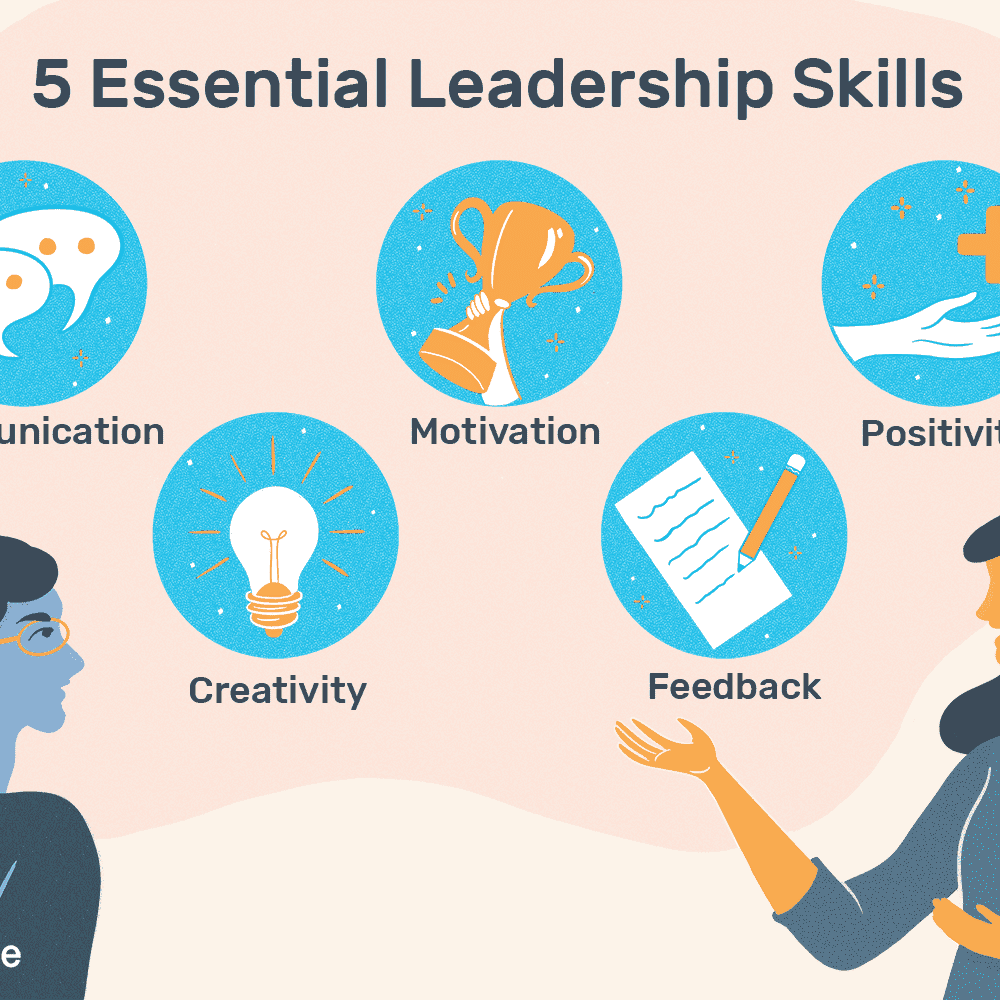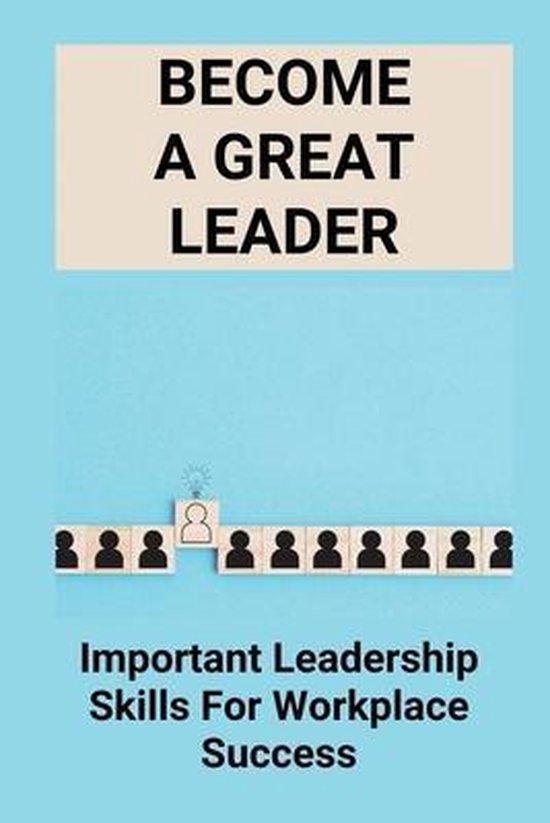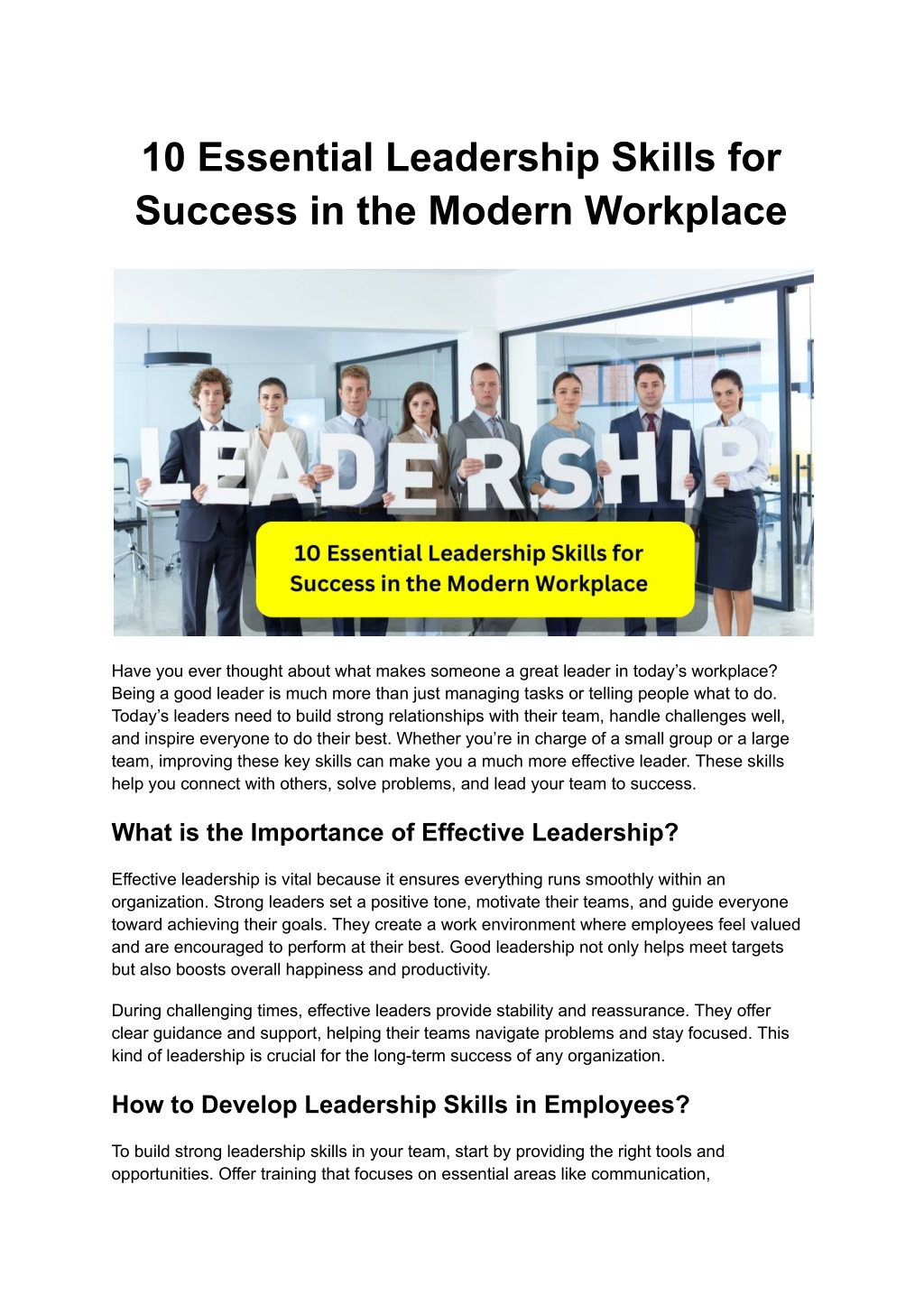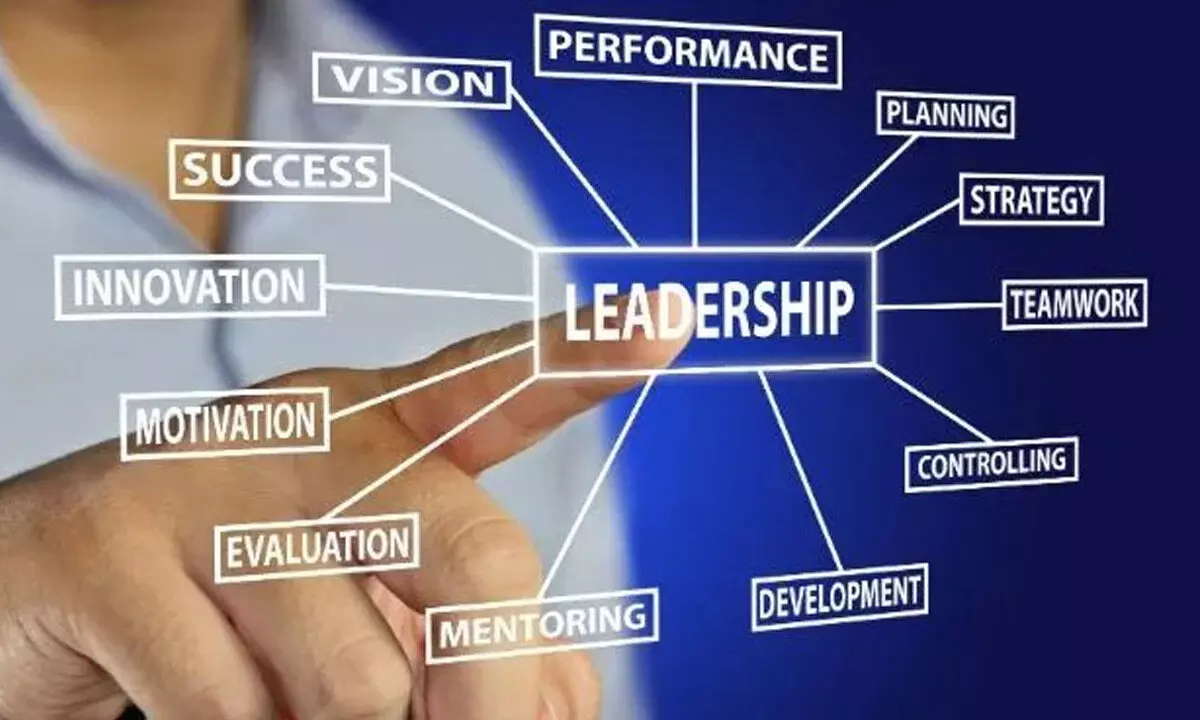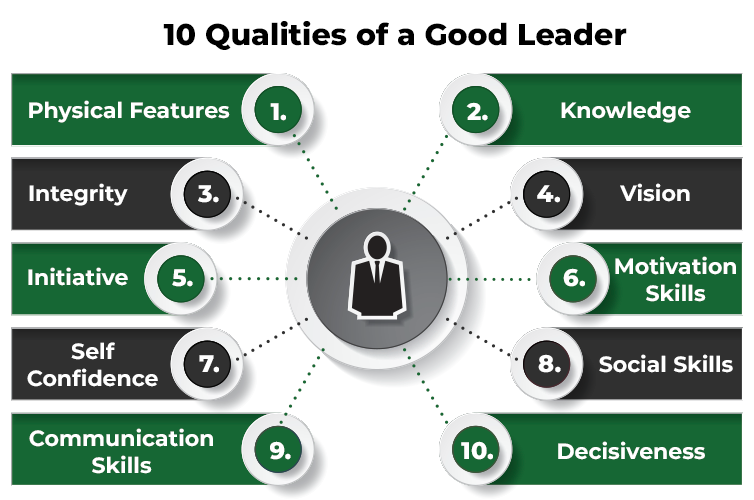Important Leadership Skills For Workplace Success
:max_bytes(150000):strip_icc()/top-leadership-skills-2063782_final-5b3e6be646e0fb0036272f42-5bbf7e0246e0fb0026d6416a.png)
In today's rapidly evolving professional landscape, possessing strong leadership skills is no longer solely the domain of those in management positions. Individuals at all levels are increasingly expected to demonstrate leadership qualities to navigate challenges, collaborate effectively, and contribute meaningfully to organizational success.
This shift underscores the importance of identifying and cultivating key leadership skills that empower individuals to thrive in the modern workplace and drive positive outcomes for their teams and organizations. But which skills are the most critical, and how can individuals develop them?
Defining Leadership in the Modern Workplace
The concept of leadership has evolved significantly. Traditional hierarchical models are giving way to more collaborative and distributed leadership approaches.
According to a recent study by Deloitte, modern leadership emphasizes adaptability, empathy, and the ability to inspire and empower others. These traits foster innovation and engagement within teams.
Key Leadership Skills for Workplace Success
Several core skills consistently emerge as essential for effective leadership, regardless of industry or organizational structure. These include communication, emotional intelligence, strategic thinking, and problem-solving.
Communication: Effective communication is foundational to leadership. Leaders must articulate their vision clearly, actively listen to their team members, and provide constructive feedback.
Poor communication can lead to misunderstandings, decreased morale, and ultimately, project failures. A report by Project Management Institute (PMI) found that ineffective communication is a primary contributor to project failure.
Emotional Intelligence: Emotional intelligence (EQ) involves understanding and managing one's own emotions, as well as recognizing and responding to the emotions of others. This ability is crucial for building strong relationships, resolving conflicts, and fostering a positive work environment.
As Daniel Goleman, author of Emotional Intelligence, argues, EQ is often a better predictor of success than IQ. Leaders with high EQ can create a culture of trust and psychological safety.
Strategic Thinking: Leaders need to be able to think strategically, anticipate future trends, and develop plans to achieve organizational goals. This involves analyzing data, identifying opportunities and threats, and making informed decisions.
Harvard Business Review consistently highlights the importance of strategic thinking for leaders at all levels. It's about seeing the big picture and aligning individual efforts with the organization's overall strategy.
Problem-Solving: The ability to identify, analyze, and solve complex problems is a critical leadership skill. Leaders should be able to approach challenges with a creative and analytical mindset, and involve their teams in the problem-solving process.
Effective problem-solving requires critical thinking, collaboration, and a willingness to experiment with different solutions. According to a survey by the World Economic Forum, complex problem-solving is one of the top skills employers are seeking.
Beyond these core skills, other important leadership qualities include adaptability, resilience, and the ability to delegate effectively. The importance of delegation has grown given the rapid rate of technological and cultural change in most modern organizations.
Developing Leadership Skills
Leadership skills are not innate; they can be developed and honed through training, experience, and self-reflection. Organizations can invest in leadership development programs, mentorship opportunities, and provide regular feedback to help employees grow their leadership capabilities.
Individuals can also take proactive steps to improve their leadership skills by seeking out opportunities to lead projects, participating in professional development workshops, and actively seeking feedback from colleagues and mentors.
Online courses and resources, such as those offered by Coursera and LinkedIn Learning, provide accessible and affordable ways to enhance specific leadership skills. The Center for Creative Leadership (CCL) is also a reputable resource.
Embracing a growth mindset and viewing challenges as opportunities for learning is crucial for continuous leadership development. Carol Dweck's research on growth mindset emphasizes the importance of believing in one's ability to learn and improve.
By cultivating these essential leadership skills, individuals can unlock their potential, contribute meaningfully to their organizations, and achieve greater success in the workplace. The skills mentioned above are the basic requirements for modern workplace success.


